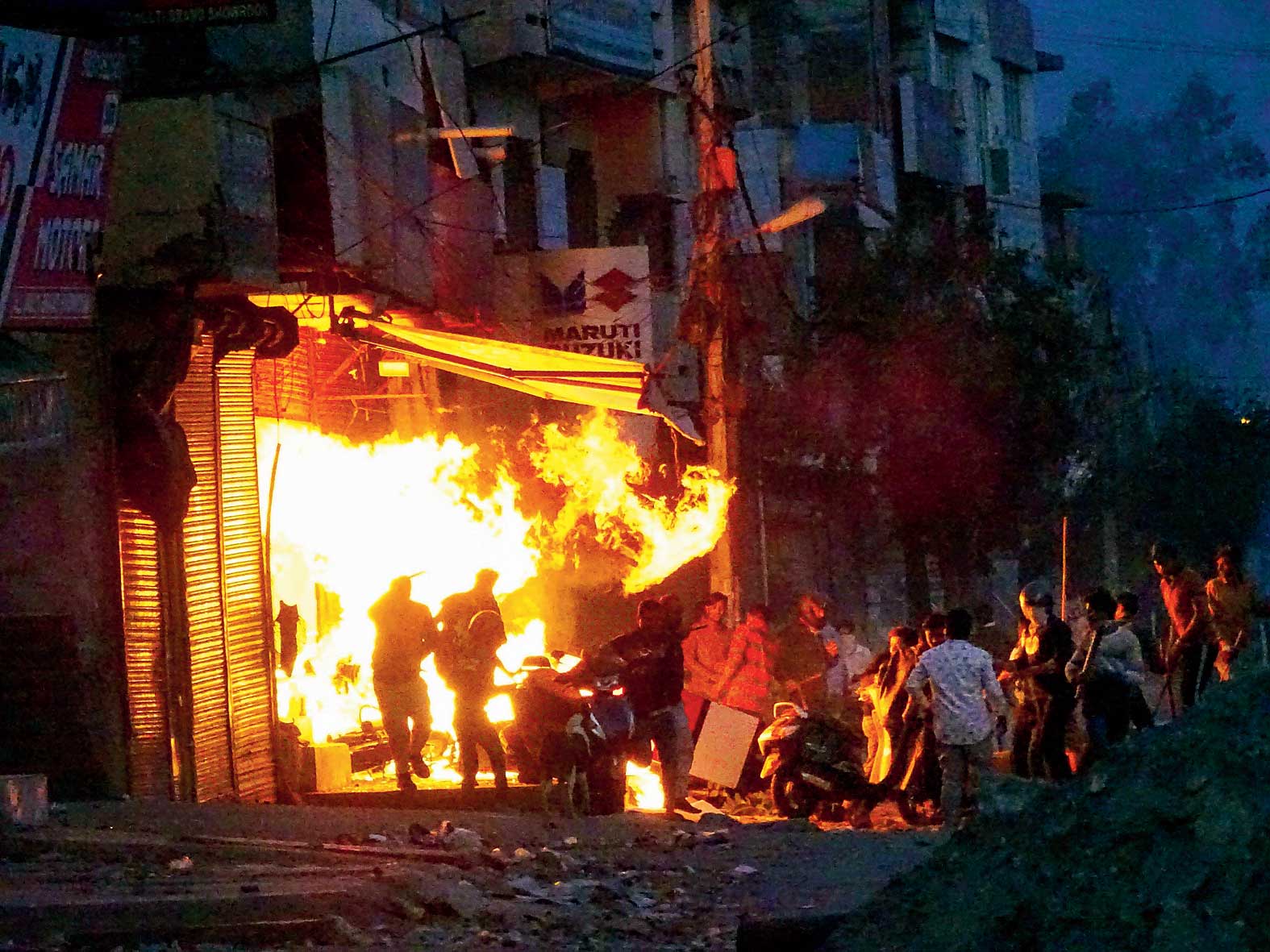The Narendra Modi government on Friday evening appeared to test the waters for the deportation of a senior journalist of The Wall Street Journal (WSJ) on the basis of a “private complaint” about the coverage of the Delhi riots and then stepped back to gloss over the issue as “a routine matter”.
The matter spilled out in the open when Prasar Bharati, the public broadcaster of India, uploaded a tweet that was subsequently deleted.
“Ministry of External Affairs today asked the Indian Embassy in the US to look into the request for the immediate deportation of WSJ’s South Asia Deputy Bureau Chief Eric Bellman, who is based in India, for ‘anti-India’ behaviour’,” the Prasar Bharati tweet said.
The WSJ had quoted the brother of Ankit Sharma, the Intelligence Bureau employee who was murdered during the Delhi riots, as saying that Ankit had been killed by a mob that was chanting slogans associated with the majority community. Later, the brother said he had never spoken to the WSJ reporter.
Before the Prasar Bharati disclosure could snowball into a full-blown controversy, the external affairs ministry said in a statement: “A complaint was registered against Mr Eric Bellman by a private individual on Government’s Online Grievance Redressal platform. Referring the matter to the related office is a routine matter as per standard procedure. No such decision on deportation has been taken by us.”
Deportation of journalists, witnessed during the Emergency in India, is now associated with countries like China and Pakistan.
By then, questions had already begun to be raised about the propriety of proceeding with a complaint by a private party against another private individual working for a privately owned newspaper.
The foreign ministry’s interest in a journalist and the deportation request came exactly a week after the Modi government banned two Indian news channels for 48 hours for their coverage of the Delhi riots. Overnight, as the furore gathered momentum, the Centre withdrew the ban on both the channels.
A BJP parliamentarian is a key investor in one of the two targeted Indian channels. The WSJ is owned by the Rupert Murdoch family, whose stable includes Fox News, the favourite channel of Modi’s friend Donald Trump and an inspiration for many government-friendly channels in India.
On Friday, the Indian foreign ministry made no reference to the Delhi riot coverage while referring to the “deportation request”.
But, in the process of setting the record straight, Prasar Bharati revealed that the “private complaint” was about WSJ’s reporting on the Delhi riots. “The complaint in this connection has been lodged with MEA on March 2 after police complaints had been lodged against WSJ for misreporting on Delhi riots, particularly about the killing of IB officer Ankit Sharma,” Prasar Bharati said.
Bellman did not comment on the developments on Friday. His Twitter account was quiet, except for him retweeting the ministry’s statement and Prasar Bharati’s clarification. It is not clear why Prasar Bharati referred to the Indian embassy in the US in its first tweet. Such issues are usually handled by the undersecretary (consular), passport and visa division, in the external affairs ministry.
The deportation episode also came on a day the IPS Association condemned The New York Times for its article on the conduct of the police during the riots. In a tweet tagging both the Prime Minister and the home minister, the association described the report as “a combination of biased reporting, dangerous innuendo and outright lies” besides a “concerted effort to denigrate and defame Indian institutions”.










